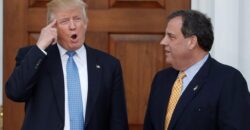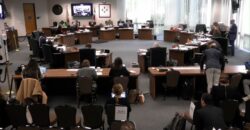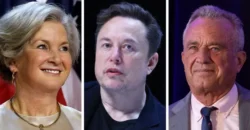President Yoon Suk Yeol of South Korea on Wednesday morning lifted the emergency martial law declaration he had imposed the night before, bowing to pressure by lawmakers and protesters after his audacious attempt to overcome the political deadlock that has hobbled his tenure.
His declaration of martial law — in an unscheduled televised address late Tuesday — incited political chaos within one of America’s closest allies in Asia and evoked memories of the dictatorial postwar regimes that stifled peaceful dissent and created a police state. But Mr. Yoon’s ploy appeared to backfire over the course of one tense night, and before the sun rose in Seoul on Wednesday, he had backed down.
As largely peaceful demonstrations arose in Seoul, the National Assembly voted 190-0 to rescind martial law, a swift rebuke of Mr. Yoon’s response to the political crisis. Hours later, Mr. Yoon convened his cabinet, which agreed to end martial law.
The consequences of his extraordinary gambit were unclear. Thousands of protesters gathered outside the National Assembly, chanting, “End martial law!” Others filled a section of an eight-lane road to call for Mr. Yoon’s arrest. A trade union with more than a million members declared an “indefinite general strike” and said it would gather in downtown Seoul early Wednesday to demand Mr. Yoon’s resignation.
Even the leader of Mr. Yoon’s own political party, Han Dong-hoon of the People Power Party, criticized the move, calling his declaration “wrong.” In a show of defiance, Mr. Han shook hands with Lee Jae-myung, the main opposition leader, when lawmakers gathered to vote against martial law.
Mr. Yoon, who is deeply unpopular, accused the opposition of plotting an “insurgency” and “trying to overthrow the free democracy.” Early Wednesday, he characterized his decision as an act “of national resolve against the anti-state forces that are trying to paralyze the essential functions of the state and disrupt the constitutional order of our liberal democracy.”
It was the first time a South Korean president had declared martial law since military dictatorship ended in the country in the late 1980s.
Here’s what else to know:
-
Calls for impeachment: The National Assembly can impeach the president if more than two-thirds of lawmakers vote for it. Mr. Yoon’s party controls 108 seats in the 300-member legislature. Thousands of people have held weekend rallies in downtown Seoul in recent months, calling for his impeachment and accusing him of incompetence, corruption and abuse of power.
-
Political paralysis: Elected after a close racein 2022, Mr. Yoon has been in a near-constant political standoff with the opposition, which controls the National Assembly. In a nationally televised speech on Tuesday night, he denounced the opposition for repeatedly using its majority to impeach members of his cabinet and block his government’s budget plans. This has “paralyzed the administration,” Mr. Yoon said. “The National Assembly, which should have been the foundation of free democracy, has become a monster that destroys it.”
-
Effects of martial law: Army Gen. Park An-su, who was appointed martial law commander, banned “all political activities,” including political party activities and citizens’ rallies, and labor activities. Gen. Park said in a decree that “all news media and publications are under the control of martial law command,” warning that those who spread “fake news” could be arrested without a court warrant.
-
U.S. relations: President Biden has put a special emphasis on South Korea, choosing it as the first non-U.S. site for his annual international conclave, the Summit for Democracy. But the American relationship with South Korea could face its biggest test in decades.
-
Korean Americans: Across the United States, Korean Americans have been glued to their phones and calling relatives and friends back in South Korea as they try to make sense of the rapidly developing events in Seoul.









